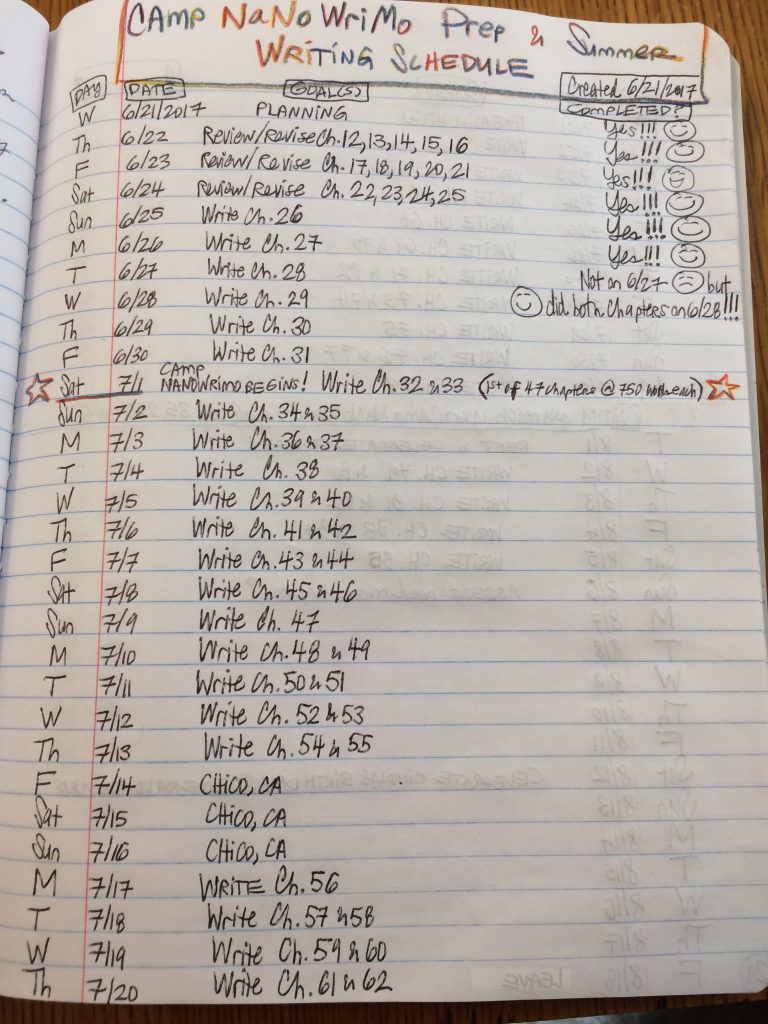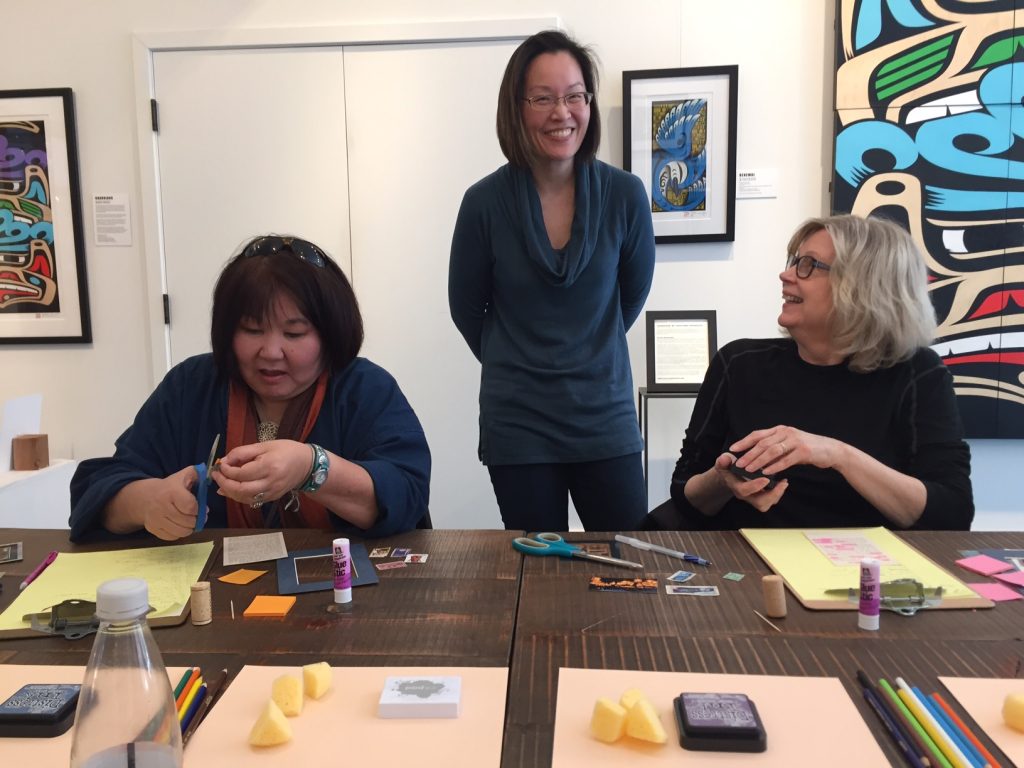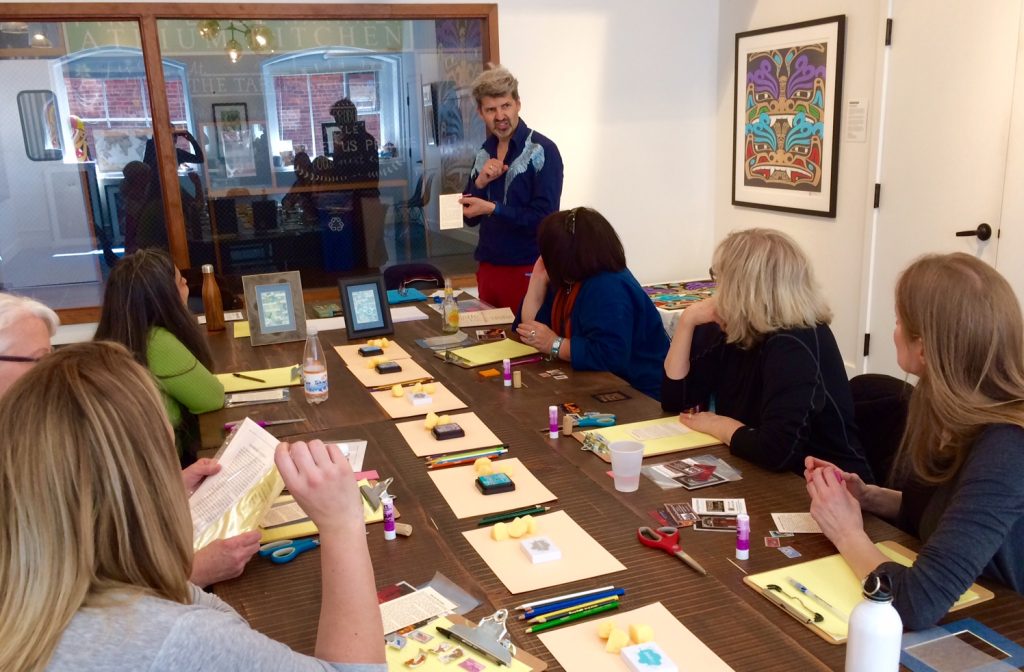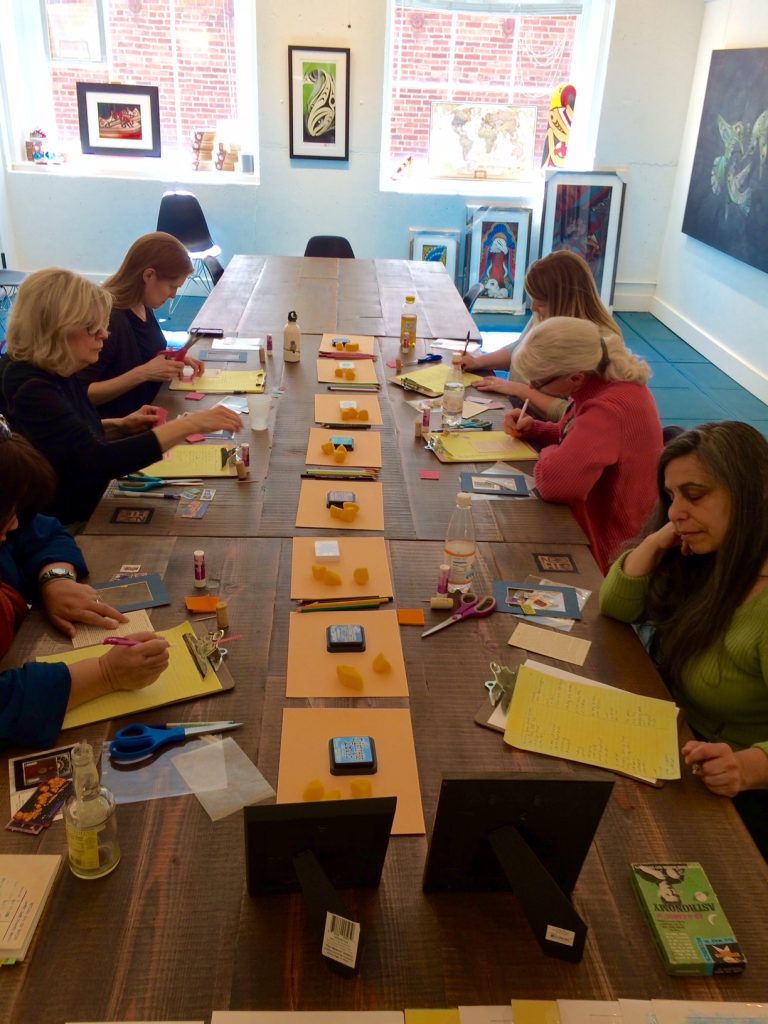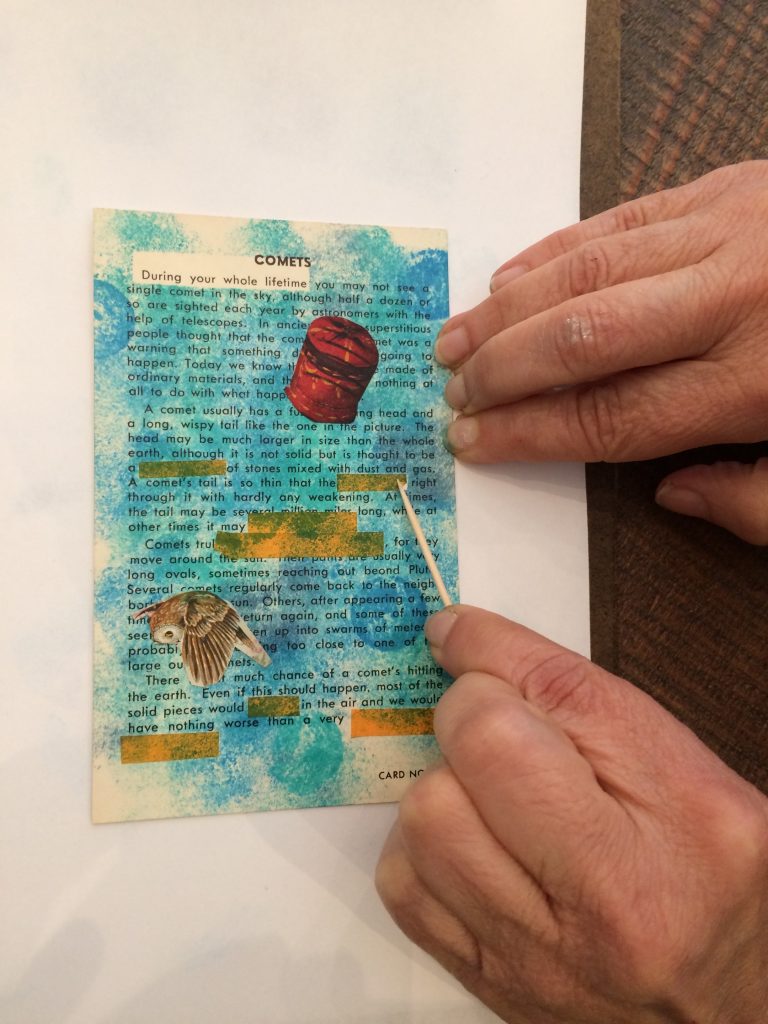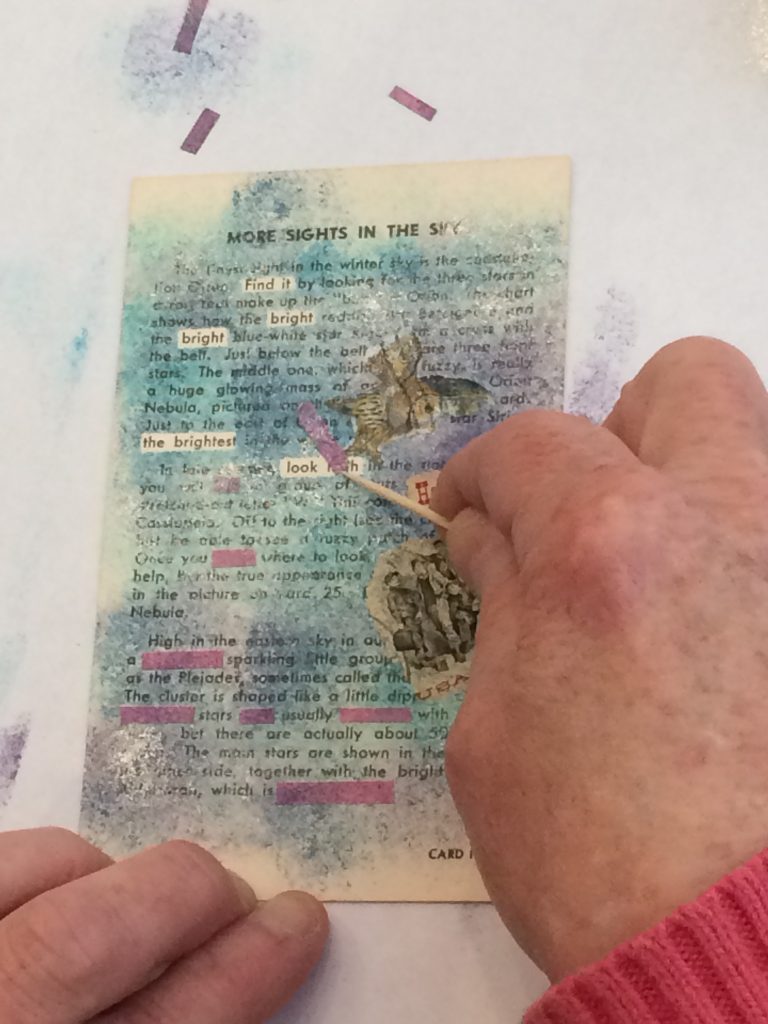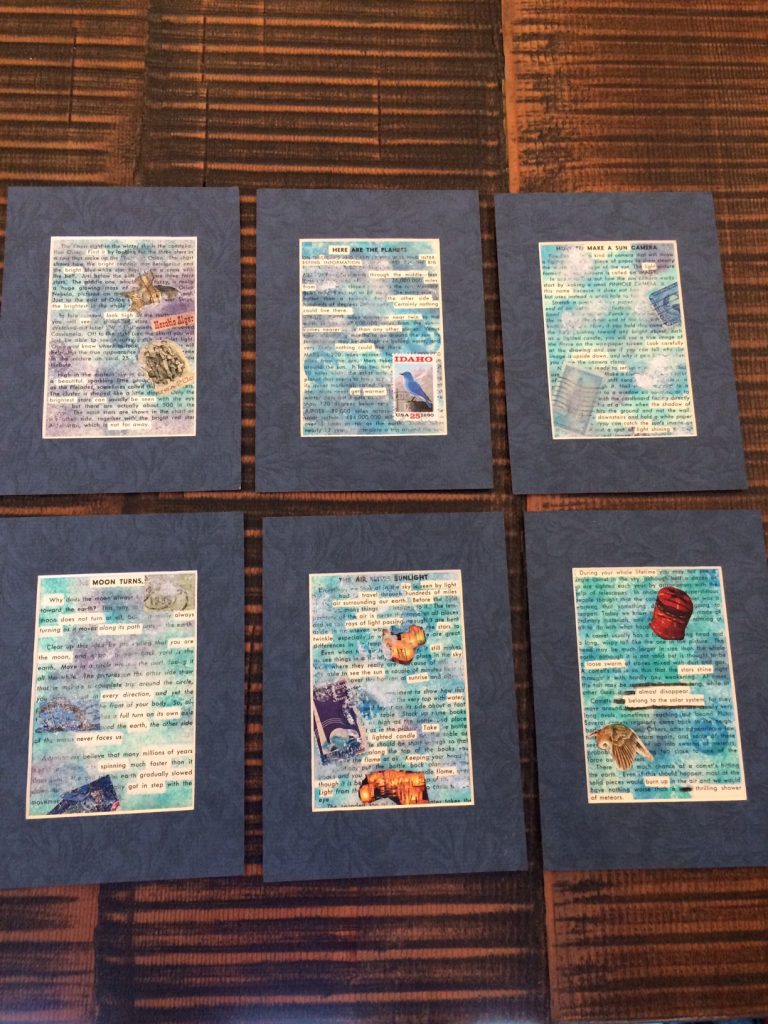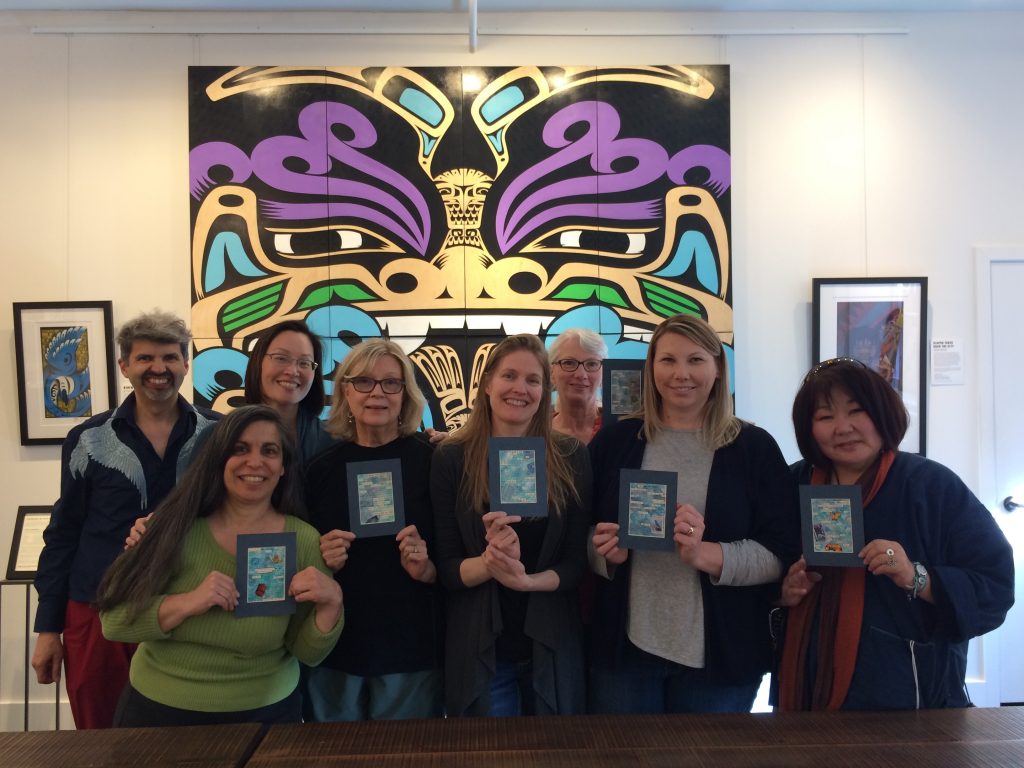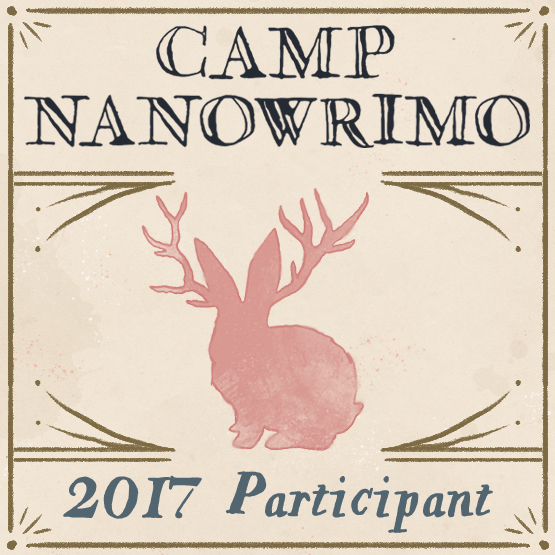 Tomorrow, I head to Camp NaNoWriMo. For those of you who aren’t familiar with it, it’s exactly how they describe it on their site: an idyllic writers retreat, smack-dab in the middle of your crazy life. The point of Camp NaNoWriMo is to complete a writing project during the month of July, track your progress, and give/get online support from your virtual cabin mates.
Tomorrow, I head to Camp NaNoWriMo. For those of you who aren’t familiar with it, it’s exactly how they describe it on their site: an idyllic writers retreat, smack-dab in the middle of your crazy life. The point of Camp NaNoWriMo is to complete a writing project during the month of July, track your progress, and give/get online support from your virtual cabin mates.
Last year was the first time I did Camp NaNoWriMo. I had mixed feelings about it and wrote about it here and here. Despite that, I wanted to give it another try. So, I’m packing up my bug spray and s’mores fixings, and here’s what I’m doing differently this time.
#1 GAME-CHANGER: I’M HOSTING MY OWN CABIN
Last year was my first year at camp so I figured it was fine to be sorted into a random cabin with 11 other writers. Out of 12 of us, 7 of us posted on our cabin’s online bulletin board and gave updates, support, and encouragement to each other. It was the BEST part of camp. But I often wondered about the other people. Did they drop out? Were they writing but didn’t want to post anything about it (not even their word count) online? I wondered why they joined camp in the first place.
This year, I wanted to be in a cabin with writers who wanted to reach their goals, and who wanted to consciously do so in an online community. I wanted to be with writers who like to support other writers, and receive support in return. So, I hosted my own cabin this year and personally invited writers I knew to join me.
I’m thrilled with who came on board. Including myself, we’ve got 15 writers: novelists of varying genres, memoirists, poets, journalists, essayists, bloggers, indie authors, traditionally-published authors, and even 3 librarians. (I love librarians so I’m especially psyched about this. Hey, Linda, Andrea, and Christina!) And since I’m the host, I got to choose our cabin’s name: the Badass Honey Badgers. Unlike Honey Badgers in the wild, Badass Honey Badgers give a sh*t, but they don’t give a f*ck (there is a difference). I can’t wait to start writing tomorrow with all these badass writers in my corner.
#2 GAME-CHANGER: I CREATED A DAILY WRITING SCHEDULE
I went to camp last year without a schedule. As a person who loves to complete tasks (hello, I’m ENFJ), that was a BIG mistake. Knowing this, I created a Daily Writing Schedule nine days ago. It includes the day and date, my goal(s) for each day, and space to indicate whether I reached that goal (I like using !!! and happy faces when I complete goals–it’s more satisfying).
To create a realistic schedule, I looked through each day of July to see what commitments I already had, and then picked a goal that made sense to me but still pushed me to challenge myself. Most days, I want to write two chapters. On some days, I will write just one chapter. I’m taking four days off for prior travel and personal engagements. Here’s a pic of my Daily Writing Schedule for your reference.
#3 GAME-CHANGER: I’VE BEEN TRAINING
As you can see from my Writing Schedule, I set goals and started working on them a little more than a week ago. I did this because I knew that I needed to create a habit out of writing one chapter or more before I went to camp. Just like I wouldn’t run a marathon without training at lesser miles each day for months, I knew I couldn’t just jump into camp without having already established some good writing habits. Good writing habits are something I’ve been working on for the past year and a half, ever since I started writing full time. So, this is nothing new for me, but getting ready for Camp NaNoWriMo motivated me even more to make it happen.
#4 GAME-CHANGER: I’VE MADE A COMMITMENT TO STOP MAKING COMMITMENTS
Setting up my Daily Writing Schedule was probably the biggest game-changer this year. Not only does it give me a map to follow each day, it also got me training early, and it helped me to see how I could not take on any more commitments in July.
I’m taking four days off in July: three for traveling to California for a family event, and one day off to celebrate my friend Alisa’s birthday (Alisa, if you’re reading this, you know how much energy it takes to go to a Mystery Lunch and then spend most of the day in birthday revelry).
In July, I also have coaching client meetings, health appointments, an authors meeting, meetups with friends, a reading I don’t want to miss, and the usual cooking, chores, exercise, and admin of life. In addition to personal or family things that might come up at the last minute, it’s imperative that I not take on any more commitments in July if I want to reach my writing goals.
“I can’t, I’m doing Camp NaNoWriMo” is my mantra for July.
#5 GAME-CHANGER: I SET A GOAL BASED ON LOGIC AND DESIRE
Last year, I set 30,000 words as my goal purely out of desire. I wrote 10,000 words.
My goal this year is to write 35,250 words. Sounds like a lot? It is. It’s ambitious. It’s a little frightening. But it’s also based on logic and desire, not just desire.
The way I figured this number out is I did a little math. I had already written Act 1 of my novel (in fact, I’ve been revising and rewriting Act 1 for most of 2017, but this is Draft 2 of my novel so don’t worry). Act 1 was 24 chapters and close to 18,000 words.
18,000 words / 24 chapters = 750 words on average per chapter. Yes, my novel has very short chapters.
Looking at my Daily Writing Schedule, I knew I wanted to complete 47 chapters in July.
So, 47 chapters x 750 words = 35,250 words.
Again, a goal based in logic and desire, not just desire, and one that I believe I can reach.
GO FORTH, CAMPERS!
I hope that these five tips gave you some inspiration and ideas for how you can make Camp NaNoWriMo the best possible writing experience for yourself. Camp hasn’t even started, but I’m already grateful that I made these game-changing changes. I feel good. I feel ready. Please feel free to post any questions or thoughts in the comments box below. I’d love to hear from you. Have a great July and if you’re at Camp NaNoWriMo, I’ll see you around the camp fire!
Peg Cheng is the author of The Contenders, a middle-grade novel centered on the question, can enemies become friends? She is currently writing another novel that is a re-imagining of the Snow White fairy tale set in 1980s Seattle. Peg is also a writing coach giving help, encouragement, and feedback to writers from all walks of life.
